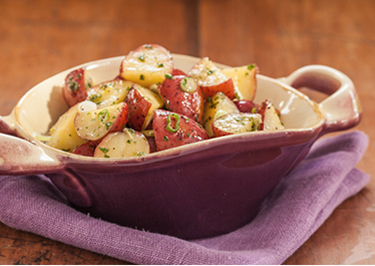Nutrition Basics: What Is Potassium?
Too much OR too little potassium could cause:
- Tingling and numbness in your toes and fingers
- Muscle weakness, cramping, fatigue
- Nausea and/or vomiting
- Irregular heartbeat or palpitations
WHAT TO REMEMBER:
How much potassium per day is right for me?
A healthy range for your potassium level is 3.5-5.0 mEq/L if you’re living with a CKD and 3.5-5.5 mEq/L if you have ESRD. If your potassium level is too high or too low, your care team can help you choose the best fruits and vegetables in the right amount to maintain a healthy potassium balance. Some example are listed below.
LOW POTASSIUM FOODS INCLUDE:
|
|
|
|
Fruits: 1 small piece or 1/2 cup. Choose fresh, canned, or frozen fruits. If dried, only 1/4 cup.
Vegetables: 1/2 cup fresh or cooked or 1 cup raw leafy
HIGH POTASSIUM FOODS INCLUDE:
|
|
|
|
Fruits: 1 small piece or 1/2 cup. Choose fresh, canned, or frozen fruits. If dried, only 1/4 cup.
Vegetables: 1/2 cup fresh or cooked or 1 cup raw leafy
What causes high potassium?
Find out how to lower potassium levels
Here are some tips for lowering potassium in your diet:
- Try salt-free and potassium-free herbs and spices—avoid “salt substitutes” that contain potassium chloride.
- Check ingredient lists for added potassium—especially in processed foods labeled “low sodium” or “reduced sodium.”
- If you’re on dialysis, complete all of your treatments exactly as prescribed—to help maintain the target potassium level.
- Talk to your care team if you have any digestive issues, high blood sugar or are taking any herbal and/or vitamin supplements—these may affect your potassium level.
Suggested topics
Nutrition Basics: What is Phosphorus?
Phosphorus is a mineral found in many foods. It works with calcium to build strong, healthy bones. When your kidneys can...
Nutrition Basics: What is Albumin?
Albumin is a type of protein made by your liver that helps keep fluid in your blood stream and helps carry vitamins and nutrients...
What to Eat and Drink on Peritoneal Dialysis
Choosing home peritoneal dialysis (PD) for treatment at stage 5 chronic kidney disease (CKD) can give you greater flexibility lifestyle in...

